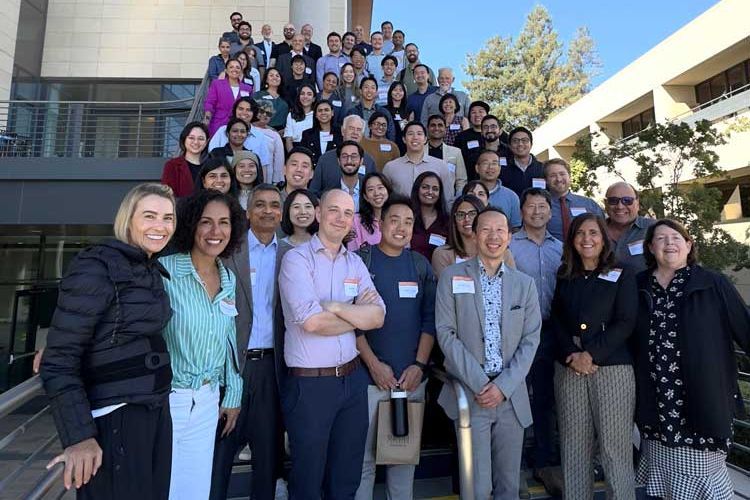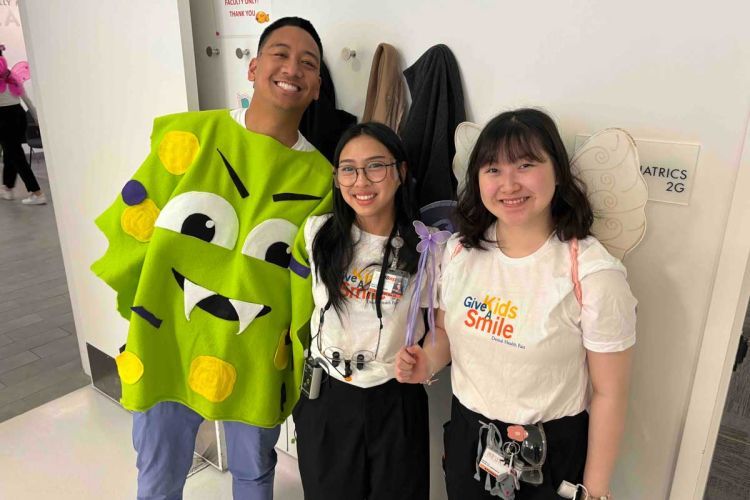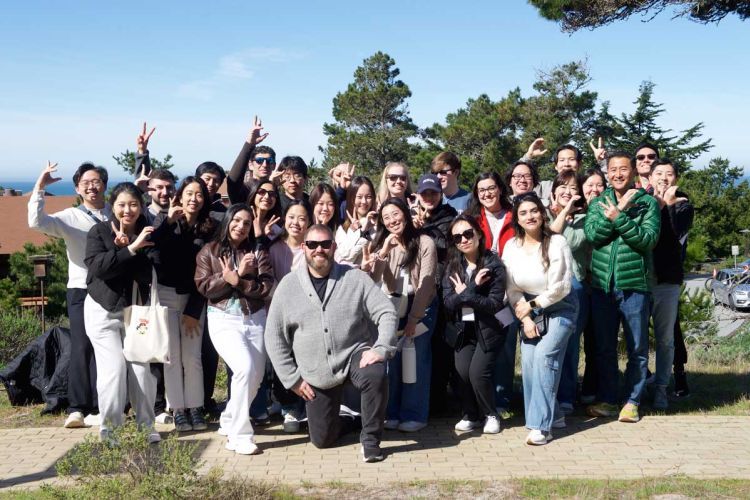Breadcrumb
Dugoni School of Dentistry and Stanford Colleagues Launch Innovative Clinical Research Collaboration
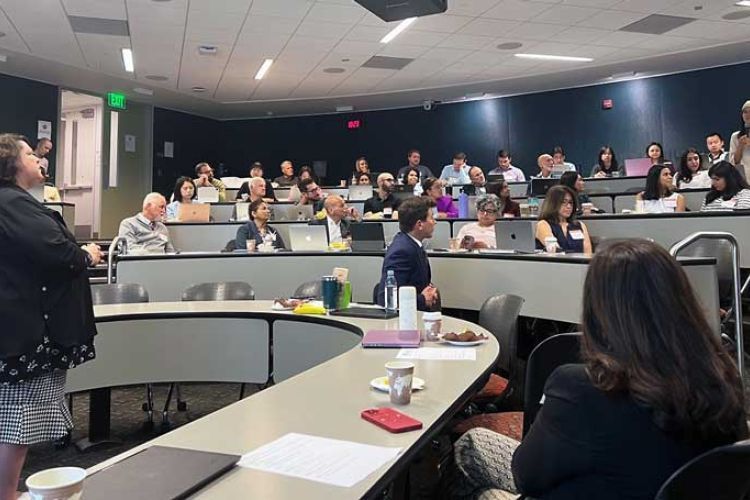
Students, residents, faculty, and alumni from University of the Pacific, Arthur A. Dugoni School of Dentistry recently kicked off the Comprehensive Clinical Research Training Program, with Stanford School of Medicine faculty serving as program facilitators. This launch marks the beginning of an extensive training program designed to equip participants with mentorship, education and toolkits needed to collaboratively deliver exciting new clinical research projects in the fields of oral health, biomedicine, technology and more.
The Sept. 14 event was held at the Stanford University campus. The program is an integral component of the Pacific-Stanford PRIMED program, which is funded by a five-year, $3.8 million grant from the National Institute of Dental and Craniofacial Research, part of the National Institutes of Health.
This inaugural cohort of 55 people includes 21 alumni, 19 faculty and 15 residents, DDS and IDS students from the Dugoni School. Event attendees came from across California as well as from New York, Arizona, Texas, New Mexico and Hawaii. The program attracted strong interest, with nearly 150 people applying to participate.
“During my general residency experience, I identified gaps in the literature on medical-dental integration, which fueled my desire to drive change and shape the future of our profession,” said Dr. Pedrom Mashaw, an alumnus of the Dugoni School. “Being surrounded by accomplished practitioners was truly energizing, sparking fresh perspectives and offering the kind of mentorship and collaboration that will be invaluable as I grow both personally and professionally.”
The program is being delivered through a blend of virtual and in-person sessions, offering participants 40 hours of formal training with continuing education credits and extensive mentorship opportunities. In parallel to the didactic training, participants will collaborate with their mentors and research groups to develop clinical research projects to secure funding to conduct these studies at the University of the Pacific and through a newly established practice-based research network within the Center for Innovation and Translation. This network will enable program graduates to recruit research participants and run clinical research within their own practices.
Following presentations by several faculty members, participants gathered in eight groups in the key topic areas of artificial intelligence/technology, biomarkers/pathology, biomaterials, growth/regeneration/craniofacial disorders, medical-dental integration/social determinants of health/special needs, microbiome, patient care/health and sleep medicine/orthodontics.
Each group will work collaboratively to identify gaps in research knowledge and develop proposals for clinical research studies. A further in-person collaboration session will be held on November 9 on the Dugoni School’s San Francisco Campus to conclude the didactic sessions. To allow participants to continue refining their project ideas and delivery, the first program cohort will run until June 2025.
“I hope to gain invaluable hands-on experience in conducting clinical research, honing my skills in data analysis, and contributing to meaningful advancements in the field,” added Dr. Fatima Mashkoor, and associate professor in the Dugoni School’s Department of Oral and Maxillofacial Surgery. “The program's emphasis on mentorship and collaboration aligns perfectly with my goals, and I'm excited to apply the knowledge and skills I acquire to future research endeavors.”
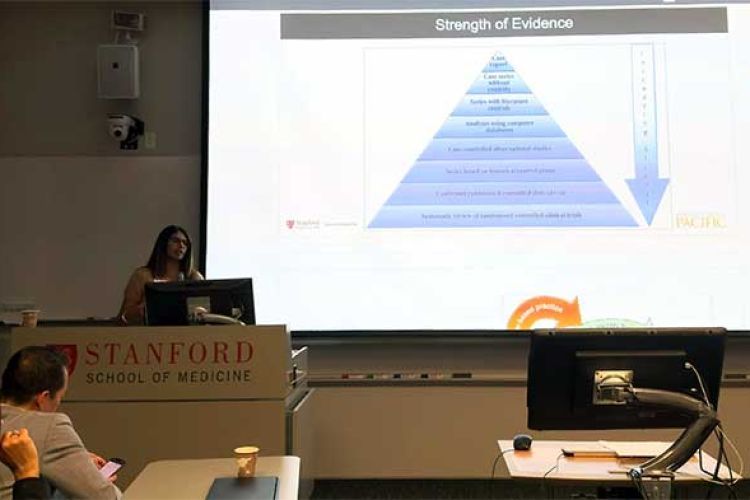
“I was drawn to the Pacific-Stanford PRIMED Comprehensive Clinical Research Program because of its interdisciplinary approach and emphasis on innovation in healthcare,” said Dr. Halima Al Haid. “As a PhD candidate, this program offers me the chance to expand my knowledge and skills in clinical research, which is key for advancing my work in preventive and restorative dentistry,”
Asked about why he was initially interested in getting involved with the program, alumnus Dr. Terence Young said “I was immediately interested in the program because our practice has addressed sleep disordered breathing (SDB) in children and adult patients since 2014, and this is an opportunity to continue to document and validate our methods used for patients with SDB in order to publish our findings.”
This comprehensive training program of the Pacific-Stanford PRIMED initiative follows the launch of the Fundamentals of Clinical Research program for all Dugoni School first-year dental students. The mandatory, formalized training included 20 hours of instruction in best practices for conducting high-quality clinical research. Students recently pledged the first-ever Dentist-Scientist Oath to mark the accomplishment of their training.
This work is supported by NIH award number: 5U01DE033276
